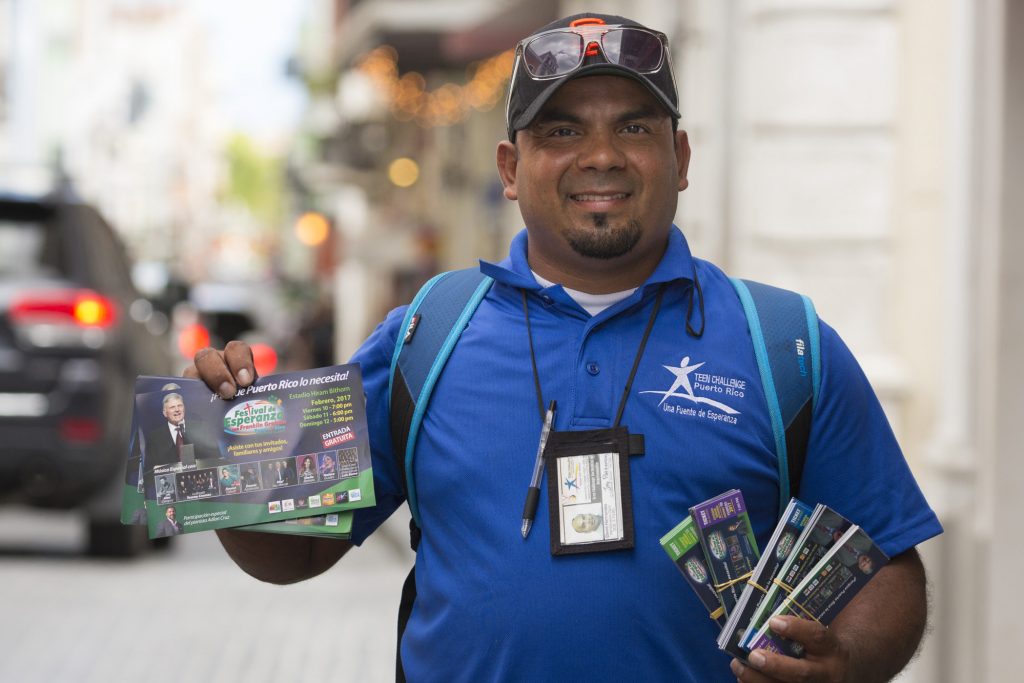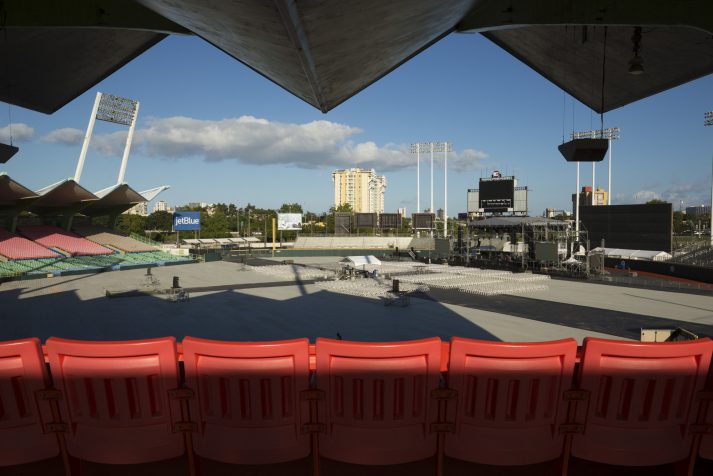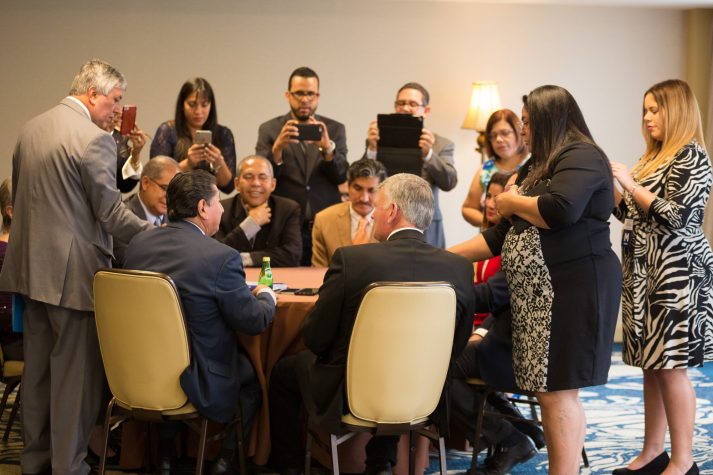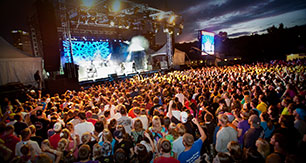
“The environment is largely American, … but linguistically, it’s almost 100 percent Latin.”
Lately, Galo Vasquez has been spending a lot of time in Puerto Rico. That’s where Franklin Graham will hold a Festival of Hope this weekend—with Vasquez, BGEA’s director of Latin American Festivals, at the helm.
As a U.S. territory situated in the Caribbean—with the British Virgin Islands to the east and the Dominican Republic to the west—Puerto Rico provides a unique blend of cultures. The Festival, locally called the Festival de Esperanza, is being treated as an international event given the differences from other United States-based Festivals.
“This is the most bi-cultural country that I have been in, and I have been in many countries around the world,” Vasquez said. There’s a definite American influence, yet “you very seldom hear a conversation in English.” The official language, in fact, is Spanish.
Watch Franklin Graham’s message on how you can pray for Puerto Rico:
Although Vasquez is overseeing the event, it’s definitely not a one-man show. No Festival is, but this one in particular has lots of locals working hands on.
“Ownership is very important here,” he said, speaking from an office in Puerto Rico. While Puerto Ricans appreciate how much BGEA has invested in the island over the years, Vasquez said, the Festival isn’t about BGEA coming in to hold an event; it’s a partnership, a joint effort, between BGEA and local churches. About 1,400 churches are actively involved.
Vasquez enjoys seeing people make the Festival their own. Plus, it’s a good way to ensure the event is “culturally relevant.” The three-day Festival will be held in the capital of San Juan, but the whole island—only a few hours from one end to the other—is participating.
It was 1967 when Billy Graham first held a Crusade there—visiting both San Juan and Ponce, about an hour-and-a-half away—and nearly 30 years later when he came back for the San Juan Global Mission in 1995, in conjunction with a Christian leadership conference.
Saying Global Mission was huge is a gross understatement.
Everyone knew Billy Graham’s name then, Vasquez said, and “nobody wanted to miss that.” Vasquez helped coordinate the event and said the atmosphere was “electrifying.” People crowded into Hiram Bithorn Stadium—where Franklin Graham will preach Feb. 10-12—and into overflow areas. Ultimately, over 175,000 people attended the three-day event, plus millions more around the world via satellite. Mr. Graham’s preaching was translated into over 40 languages.
Vasquez was one of those interpreters, set up in a large room during the largest Latin American Crusade of Mr. Graham’s ministry.
People in Puerto Rico still talk about it.
Billy Graham returned to the island again in 2010, this time not in person but via the My Hope video outreach. Not long after that, Puerto Rican church leaders began working with Vasquez to host a Franklin Graham Festival.
Situated in the clear, tropical waters of the Caribbean, Puerto Rico’s main industry is tourism. It’s relaxed and easy-going, yet everyday burdens are bubbling underneath.
The name Puerto Rico means “Rich Port.” Right now, though, the territory is in the midst of a major bankruptcy crisis which has led many local professionals heading for mainland U.S. The island is also divided politically; some want to continue a strong relationship with the U.S. while others want to declare independence.
“Puerto Rico is in a very serious political, economic transition,” Vasquez said. “There’s an incredible uncertainty throughout society.”

Historically, Puerto Rico has been open to evangelical Christianity—ever since the U.S. acquired the island in the late 1800s. By the 1980s and ’90s, Vasquez said, over half of Puerto Rico’s population was Christian, and today, there are an estimated 7-8,000 evangelical churches on the island.
But the number of professing Christians has declined over the past decade, he said. The same trends seen in mainland U.S. are seen in Puerto Rico: Christians get too comfortable in their own bubble and fail to reach others for Christ, while becoming too focused on entertainment and prosperity.
“All of a sudden,” he said, “their faith in God is not a priority anymore.”
Christianity is still woven throughout daily life—everyone, even non-Christians—seems to listen to Christian radio, but Vasquez said there’s a lack of expressing that faith.
Spiritism has a hold there, and secularism is on the rise, while Catholic and evangelical faiths are losing ground.
In preparation for the Festival, the island has held pastor gatherings, hosted community projects and trained hundreds to be counselors at the event. Many there are in the middle of 40 days of prayer and fasting leading up to the Festival.
“They’re really excited that once again they’re having this opportunity to work together and to do what they used to do in the past, publicly proclaiming the Gospel,” Vasquez said.
In this time of crisis, he continued, many are wondering, “‘What’s going to happen to us? Where are we going as a country?’ We’re going to let people know where there is hope.”
Will you join us in praying for the Festival of Hope in San Juan?



